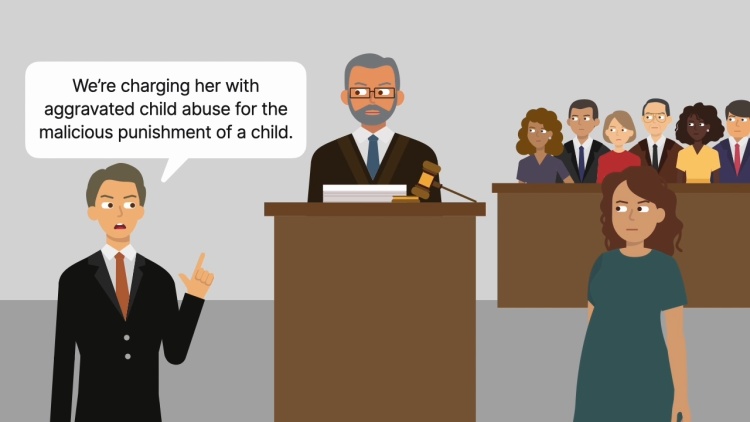Young v. State
Florida District Court of Appeal
753 So. 2d 725 (2000)
- Written by Abby Roughton, JD
Facts
The State of Florida (plaintiff) charged Yonbloksis Young (defendant) with aggravated child abuse of her son. The relevant state statute provided that aggravated child abuse occurs if a person maliciously punishes a child. At trial, the jury heard evidence that Young was upset because she believed that a relative had been teaching her sons to steal. A Department of Children and Families investigator testified that Young’s son told the investigator that Young had hit him with an extension cord because Young believed the son had stolen from her. The investigator also testified that Young told him that she had hit her son with a computer cord after he threw a video game joystick at her. Young’s child testified that Young had spanked him with a folded extension cord as punishment for something that he had not actually done. During the charge conference at trial, Young asked the trial court to give a jury instruction on aggravated child abuse that defined malice as “ill will, hatred, spite, an evil intent,” i.e., actual malice or malice-in-fact. However, the court denied Young’s request and instead used a standard Florida jury instruction that defined the term maliciously in the aggravated-child-abuse context as “wrongfully, intentionally, without legal justification or excuse,” i.e., legal malice. The jury found Young guilty, and Young appealed her conviction to the Florida District Court of Appeal.
Rule of Law
Issue
Holding and Reasoning (Webster, J.)
What to do next…
Here's why 907,000 law students have relied on our case briefs:
- Written by law professors and practitioners, not other law students. 47,100 briefs, keyed to 996 casebooks. Top-notch customer support.
- The right amount of information, includes the facts, issues, rule of law, holding and reasoning, and any concurrences and dissents.
- Access in your classes, works on your mobile and tablet. Massive library of related video lessons and high quality multiple-choice questions.
- Easy to use, uniform format for every case brief. Written in plain English, not in legalese. Our briefs summarize and simplify; they don’t just repeat the court’s language.







